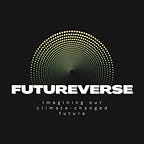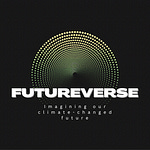In this episode of Futureverse, Molly Wood and Ramanan Raghavendran sit down with acclaimed author and scientist Naomi Oreskes. They delve into the world of climate communication, from historical turning points to the influence of money and ideology in climate denial.
She also shares insights from her books and discusses the different hurdles in the climate conversation, the power of fiction in tackling climate issues, and the urgent need for effective science communication.
The full transcript is available by clicking above. This episode is also available on Apple Podcasts and Spotify.
Highlights
02:29 Historical Moments in Climate Change Response
07:19 The Role of Money and Ideology in Climate Denial
08:57 Exploring Climate Fiction and Imagination
12:01 The Importance of Narrative in Science Communication
16:37 Challenges Faced by Climate Scientists in Communication
19:50 The Arbitrary Nature of Scientific Standards
24:12 The Big Myth: Unpacking Free Market Ideology
27:16 The Role of Fiction in Climate Discourse
33:23 Capitalism and Climate Crisis: A Complex Relationship
35:39 Imagining the Collapse of Western Civilization
37:49 Future Endeavors: Naomi's Next Projects









